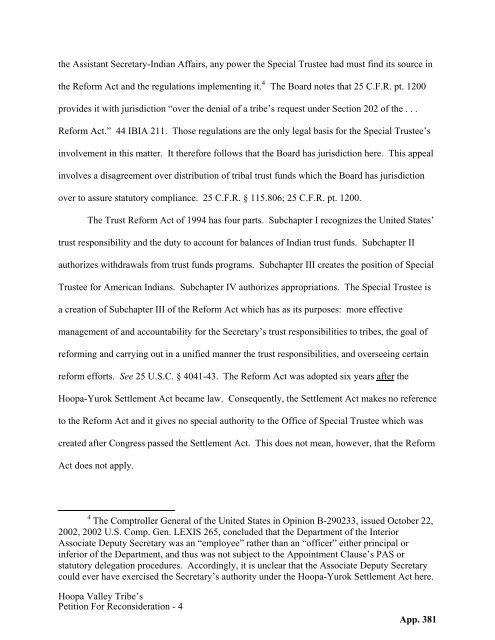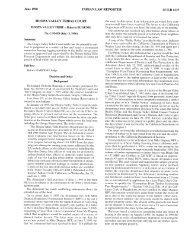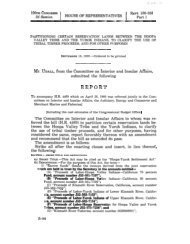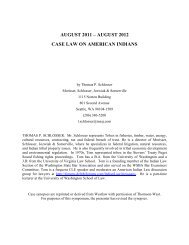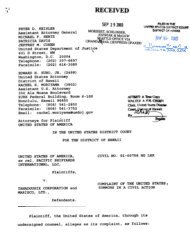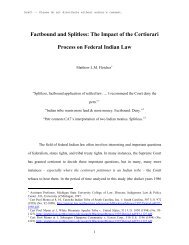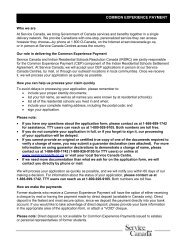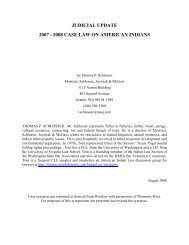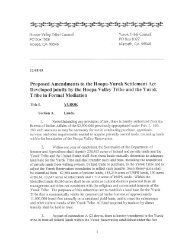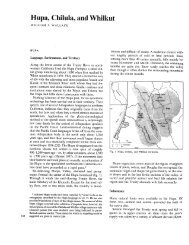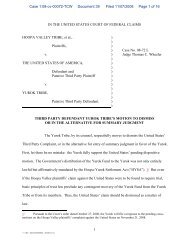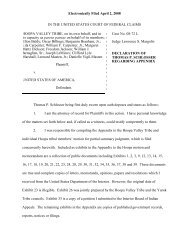Hoopa appendix supporting summary judgment - Schlosser Law Files
Hoopa appendix supporting summary judgment - Schlosser Law Files
Hoopa appendix supporting summary judgment - Schlosser Law Files
You also want an ePaper? Increase the reach of your titles
YUMPU automatically turns print PDFs into web optimized ePapers that Google loves.
the Assistant Secretary-Indian Affairs, any power the Special Trustee had must find its source in<br />
the Reform Act and the regulations implementing it. 4 The Board notes that 25 C.F.R. pt. 1200<br />
provides it with jurisdiction “over the denial of a tribe’s request under Section 202 of the . . .<br />
Reform Act.” 44 IBIA 211. Those regulations are the only legal basis for the Special Trustee’s<br />
involvement in this matter. It therefore follows that the Board has jurisdiction here. This appeal<br />
involves a disagreement over distribution of tribal trust funds which the Board has jurisdiction<br />
over to assure statutory compliance. 25 C.F.R. § 115.806; 25 C.F.R. pt. 1200.<br />
The Trust Reform Act of 1994 has four parts. Subchapter I recognizes the United States’<br />
trust responsibility and the duty to account for balances of Indian trust funds. Subchapter II<br />
authorizes withdrawals from trust funds programs. Subchapter III creates the position of Special<br />
Trustee for American Indians. Subchapter IV authorizes appropriations. The Special Trustee is<br />
a creation of Subchapter III of the Reform Act which has as its purposes: more effective<br />
management of and accountability for the Secretary’s trust responsibilities to tribes, the goal of<br />
reforming and carrying out in a unified manner the trust responsibilities, and overseeing certain<br />
reform efforts. See 25 U.S.C. § 4041-43. The Reform Act was adopted six years after the<br />
<strong>Hoopa</strong>-Yurok Settlement Act became law. Consequently, the Settlement Act makes no reference<br />
to the Reform Act and it gives no special authority to the Office of Special Trustee which was<br />
created after Congress passed the Settlement Act. This does not mean, however, that the Reform<br />
Act does not apply.<br />
4 The Comptroller General of the United States in Opinion B-290233, issued October 22,<br />
2002, 2002 U.S. Comp. Gen. LEXIS 265, concluded that the Department of the Interior<br />
Associate Deputy Secretary was an “employee” rather than an “officer” either principal or<br />
inferior of the Department, and thus was not subject to the Appointment Clause’s PAS or<br />
statutory delegation procedures. Accordingly, it is unclear that the Associate Deputy Secretary<br />
could ever have exercised the Secretary’s authority under the <strong>Hoopa</strong>-Yurok Settlement Act here.<br />
<strong>Hoopa</strong> Valley Tribe’s<br />
Petition For Reconsideration - 4


